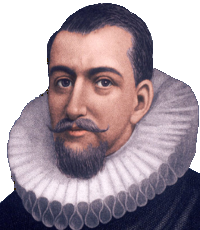G.K. Chesterton, 1874-1936 CE, was a British journalist and author, still known today for the Father Brown series of detective stories. But Chesterton was also a philosopher of sorts and a devout Catholic. On September 18, 1909, he wrote an article in the Illustrated London News in which he discussed Indian nationalism. He did not like it, but not for the reasons one might expect. Indian nationalists, he declared, are “not very Indian and not very national.” What they want for their country are all the trappings of our government – they want our parliament, our judiciary, our newspapers, our science. The fact that Indian nationalists want all these things is evidence that they really want to be English. As a result, “[w]e cannot feel certain that the Indian Nationalist is national.”
Mahatma Gandhi, the leader of the Indian independence movement, who was visiting London at the time, read Chesterton’s article when it first appeared and, according to his biographer, “he was thunderstruck.” On the boat back to South Africa two months later he wrote the first draft of Hind Swaraj, the only book in which he addressed the problem of “home rule.” Clearly Chesterton’s thoughts were still with him. In order to obtain home rule, Gandhi insisted, we must first make sure that we have a home which is truly ours. If we only copy English institutions, our country will not be “Hindustan,” but instead “Englistan.” For a country to be independent, it must be defined in independent terms. India must be herself, not a version of Britain. Starting from this premise, the rest of the book is an elaboration on what home rule really means.
Chesterton and Gandhi were romantics and they were quick to denounce the evils of modern society. “It is machinery that has impoverished India,” Gandhi argued, and in particular the factories of Manchester that had wiped out India’s indigenous cotton industry. Gandhi’s famous response was to learn how to spin his own yarn using a hand-loom, and to make his own clothes. This, he argued, was the way to make India self-sufficient. Only a self-sufficient India would be able to rule itself.
External links:
15 Minute History, “Inside the Indian independence movement”
G.K. Chesterton, “On Mr. Rudyard Kipling and Making the World Small”
- “What’s Wrong: GKC in Periodicals”
- G.K. Chesterton, Illustrated London News, Sept 18, 1909
- Gandhi Ashram at Sabarmati
- Internet Archive, Book on or by G.K. Chesterton
- Internet Archive, Material by and about Mahatma Gandhi
- The American Chesterton Society
- YouTube, “G.K. Chesterton, Why I am a Catholic”

